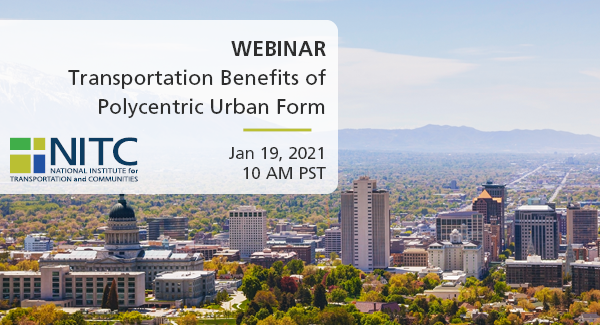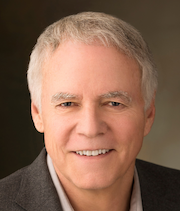
PRESENTATION ARCHIVE
OVERVIEW
A “polycentric” region consists of a network of compact developments connected with each other through high-quality transportation options. Rather than continuing the expanse of low-density development radiating from an urban core, investments can be concentrated on central nodes and transit connections. This development pattern is very popular in Europe and is linked to significant benefits. This presentation is aimed at exploring the academic literature and empirical evidence surrounding polycentric development, analyzing more than 120 regional transportation plans to see how they promote polycentric development, defining types of centers in a hierarchy of centers, quantifying the transportation benefits of polycentric development, examining a case study of best practices, and, finally, outlining context-specific strategies for Salt Lake County and the Wasatch Front region.
KEY LEARNING OUTCOMES
- Regional transportation plans suffer from a lack of consistent indicators to designate centers and guide their developments.
- On average, households living in centers tend to make fewer and shorter automobile trips, take transit more, walk more, and bike less.
- Tours (a sequence of trips that begins and ends at home) associated with centers consist of more sustainable commuting modes than ones that are completely outside the centers.
- The built environment thresholds and relevant tools provided in our presentation (and report) can enable urban and transportation planners to make informed decisions about future growth patterns, set realistic—yet visionary—goals, and improve the overall health of its residents and communities.
THE RESEARCH
This webinar is based on a study funded by the National Institute for Transportation and Communities (NITC) and conducted at the University of Utah. Read more about the research: Reducing VMT, Encouraging Walk Trips, and Facilitating Efficient Trip Chains through Polycentric Development.
SPEAKER
Reid Ewing, University of Utah
Reid Ewing is a Distinguished Professor of City and Metropolitan Planning at the University of Utah, associate editor of the Journal of the American Planning Association, and columnist for Planning magazine. His 10 books include Pedestrian and Transit-Oriented Design, co-published by the Urban Land Institute and American Planning Association; Growing Cooler: Evidence of Urban Development and Climate Change, published by the Urban Land Institute; and Best Development Practices, listed by the American Planning Association (APA) as one of the 100 “essential” books in planning over the past 100 years. Ewing’s research focuses on the built environment at five different scales and its impacts on quality of life. He has studied the built environment at scales ranging from the individual block and pedestrian activity, to the MXD and internal capture, to the metropolitan region and mode shares.Sadegh Sabouri, University of Utah
Sadegh Sabouri is a Ph.D. candidate in the Metropolitan Planning, Policy and Design program at the University of Utah. He received his bachelor and master of urban planning from the University of Tehran and currently, he is working as a research analyst at the Metropolitan Research Center (MRC). Sabouri's research focuses on the technologies' impacts on transportation, ride-sourcing services, and advanced data analytics in urban and transportation planning. He has published a dozen of papers in top journals and conferences of urban and transportation planning, such as Cities, JAPA, and Transportation Research Part D. His doctoral study focuses on the impact of built environment on the adoption of ride-sourcing services and the impact of Uber availability on car ownership rates.PROFESSIONAL DEVELOPMENT
This 60-minute webinar is eligible for 1 hour of professional development credit for AICP (see our provider summary). We provide an electronic attendance certificate for other types of certification maintenance.
LEARN MORE
Sign up for our newsletter to get updates on our events.
Photo by AndreyKrav
This webinar is hosted by the Transportation Research and Education Center (TREC) at Portland State University. The research was funded by the Summit Foundation and the National Institute for Transportation and Communities (NITC), a program of TREC and one of five U.S. Department of Transportation national university transportation centers. The NITC program is a Portland State-led partnership with the University of Oregon, Oregon Institute of Technology, University of Utah and new partners University of Arizona and University of Texas at Arlington. We pursue our theme — improving mobility of people and goods to build strong communities — through research, education and technology transfer.


